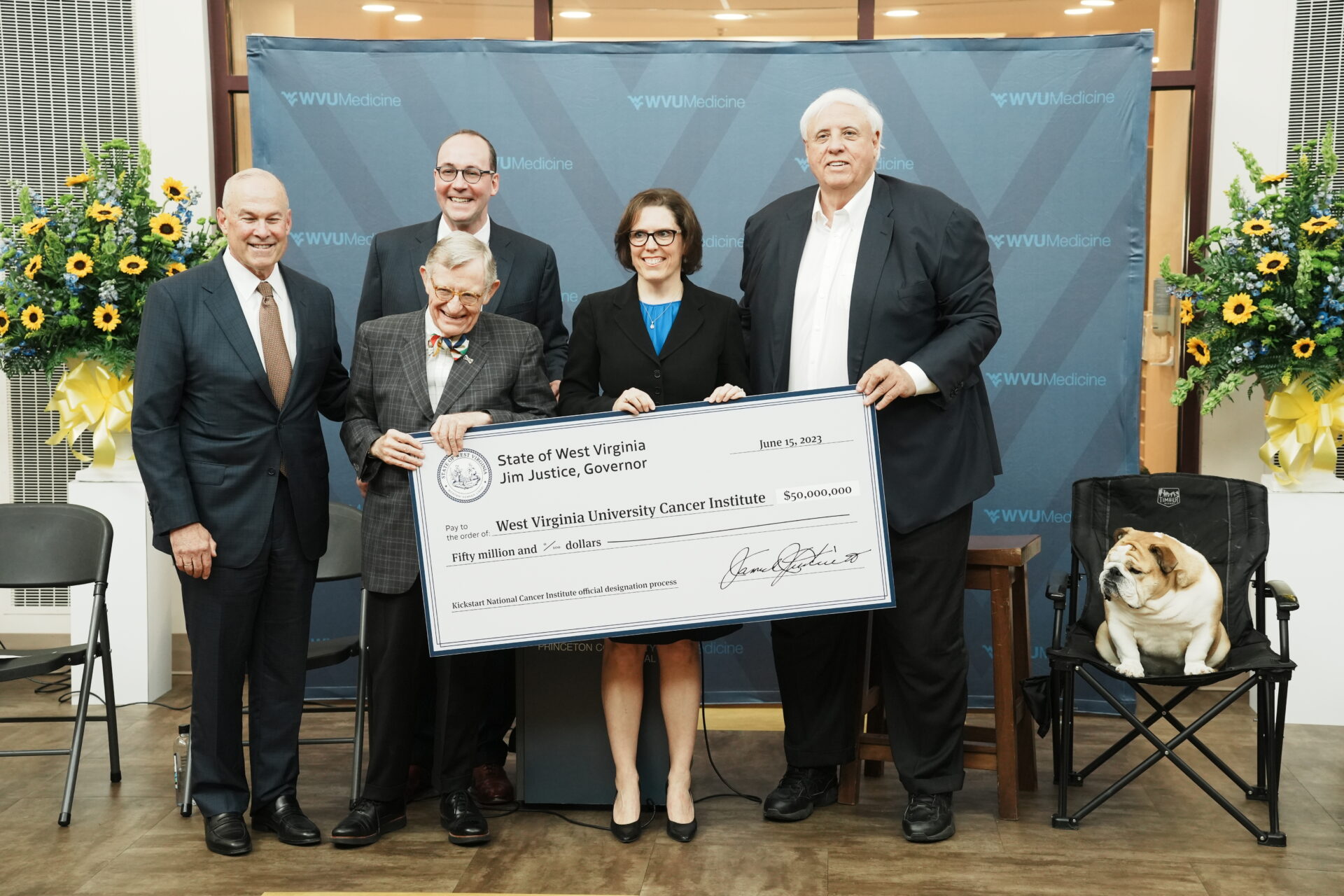Alongside health officials from West Virginia University, Gov. Jim Justice announced Thursday that $50 million of the state’s surplus funding will support investment to attain National Cancer Institute designation for the WVU Cancer Institute.
“I am thrilled to deliver this $50 million check to the West Virginia University Cancer Institute in their pursuit of an official cancer center designation by the National Cancer Institute,”. Justice said. “I want to express my deep gratitude to the West Virginia Legislature for allocating these crucial funds, and to WVU Medicine for pursuing this incredible goal, because we all recognize the importance and significance of obtaining this recognition from the NCI, as it is only bestowed upon the nation’s top cancer centers. This funding will serve as a catalyst to jumpstart our progress towards that goal, and I couldn’t be more proud.”
The funding was included in House Bill 2024 as part of the Fiscal Year 2024 budget passed by the West Virginia Legislature.
According to a press release, the money will be used for comprehensive research programs, faculty and facilities that will directly lead to innovative approaches in cancer prevention, diagnosis and treatment.
“Our goal is to place the WVU Cancer Institute in the top 2 percent of cancer centers nationwide, which will improve the health and wellness of the people in our state, particularly in southern West Virginia, by reducing cancer occurrence rates and increasing cancer survival,” WVU President Gordon Gee said.
The National Cancer Institute leads cancer research across the country and recognizes cancer centers with an official NCI designation, the highest federal rating a cancer center can achieve.
Justice made the announcement at WVU Medicine Princeton Community Hospital with Gee, WVU Health System President and Chief Executive Officer Albert L. Wright, Jr., WVU Health Sciences Chancellor and Executive Dean Dr. Clay Marsh and WVU Cancer Institute Director Dr. Hannah Hazard-Jenkins.
Appalachia Health News is a project of West Virginia Public Broadcasting with support from Charleston Area Medical Center and Marshall Health.
